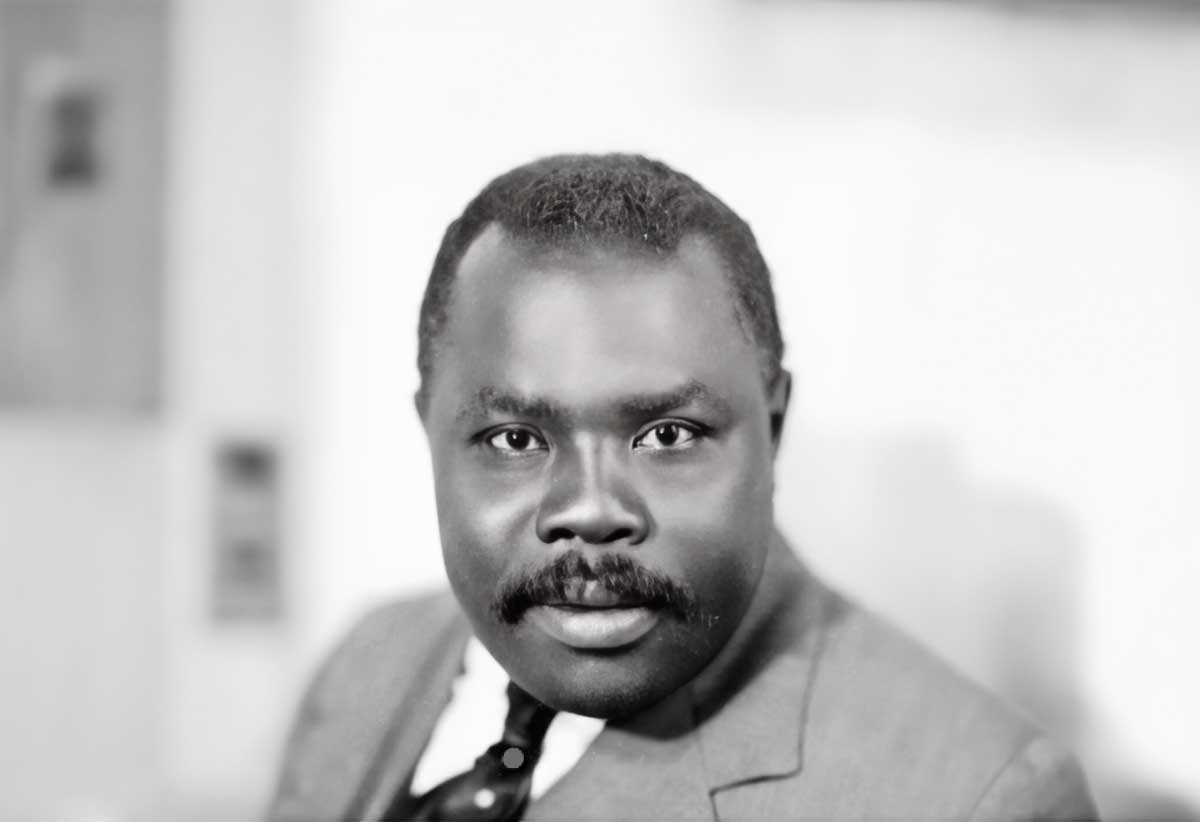

THURSDAY August 17 marked Marcus Garvey’s 136th birth anniversary.
Born in 1887, he lived to be 53 and died in the UK on June 10, 1940 and in 2018, the Jamaica government ‘pardoned’ Mosiah and other Jamaican freedom fighters charged, jailed or killed in action against Slavery and colonialism.
But five years later — and for yet another year — Jamaica has got nowhere in its continuing fight to get Washington to also clear Garvey of criminal charges for alleged ‘Mail Fraud’, at a time when that specific charge was repeatedly used to persecute and prosecute anyone advocating reparations and promoting African pride in the USA.
‘Mail Fraud’ was used to convict the Jamaica-born Caribbean leader of over eleven million people of African descent worldwide, and thus start officialdom’s warranted decline from the persistent persecution and prosecution that eventually led to his arrest, deportation, banishment — and subsequent death.
Interestingly, the world had accepted that Garvey was a great man on a greater mission, whose accomplishment in bringing pride home to black people resonated across Africa, The Caribbean, The Americas, Europe and everywhere blacks and other minorities existed on Planet Earth, during the first half of the 20th Century.
Other hardly-remembered Caribbean personalities also contributed to the growth of African consciousness on the continent and worldwide:
Ghana’s first President, Kwame Nkrumah, recruited Saint Lucia’s Sir Arthur Lewis as an economic advisor, who influenced the decision to name the new nation’s shipping company ‘The Black Star Line’ — after Garvey’s ‘Black Star Liners’, purchased with funds from members and supporters of the United Negro People’s Association (UNIA) and African Communities League.
John Quinlan, a Saint Lucian surveyor with eyes on astronomy (author off ‘The Earth a Plane’) who spoke-up loudly in the UK representing Caribbean clients and the wider Pan African Movement before the UK’s 1887 royal commission on the state of ex-slaves in the colonies 50 years after Emancipation; and the bilingual Quinlan also featured highly the first Pan African Congress in London in 1900.
Sir Darnley Alexander, another Saint Lucian, was also the first Chief Justice of the State of Niger (then Nigeria’s largest state and now a republic very-much in the daily news).
Dominica’s Sir Telford Georges was Tanzania’s first Chief Justice; and Rosie Douglas etched his name, alongside other immigrant Caribbean students, into the history of resistance to racism at the George Williams university in Canada.
Likewise, Guyana’s Dr Walter Rodney taught at and has a chair named after him at Tanzania’s main university; Trinidad & Tobago’s Stokley Carmichel (Kwame Ture) invented the term ‘Black Power’ in the USA; fellow Trinidadian Claudia Jones (also arrested and deported from the USA to the UK for her activism) founded London’s now-famous Notting Hill Carnival; and Jamaica’s colorful attorney Dudley Thompson defended Kenya’s Jomo Kenyatta during his long trial for leading the anti-colonial fight.
From the then French-speaking West Indies, Martinique’s Frantz Fanon’s writings heavily influenced liberation movements in French African colonies, including Senegal’s Leopold Senghor; and Aime Cesaire’s writings likewise inspired many progressive African intellectuals…
But important as each and all were, none neared Garvey’s many accomplishments on his long road in a relatively short life of persistent struggle.
Garvey has been honored at home as a national hero and internationally as Jamaica’s contribution to the world, who planted many of the seeds we harvest today and about who volumes have been written highlighting his global contributions to the pride of people of African descent everywhere today — yet his story still hasn’t formally entered all Caribbean schools and history books.
Every CARICOM nation has a Garveyite legacy, but it’s all still very-much shrouded in general acknowledgements of his vision and contributions, without equal care and concern about the way his reputation was permanently sullied in America by the same intelligence services that would later use lies and illegal means to haunt, harass and halt the activities and careers of the likes of Martin Luther King and Malcolm X (and many others).
Jamaica has, for five years, been carrying out this lonely but brave battle to get Washington to accept that Garvey was politically targeted by its secret services for his activism and leadership.
The Andrew Holness administration recently wrote President Joe Biden, repeating the age-old appeal for cleansing Garvey’s record and restoring his reputation in the American justice system.
However, this five-year-old quest continues to be as hard as persuading any US President since his death in 1983 to return Prime Minister Maurice Bishop’s body to Grenada for a decent burial, or getting European monarchs to elevate their private expressions of royal sorrow for Slavery and Native Genocide to full and formal apologies and agreements for atonement, through reparations.
But just as time never runs-out in pursuit of Reparatory Justice, history also always serves-up opportunities (like now) to remind Washington (and other allies that benefitted from trans-Atlantic Chattel Slavery) that the Caribbean has come-of-age and its 14 independent nations will work together in pursuit of common regional objectives, as in this case of cleansing Garvey’s name.
CARICOM is officially on-board, but should more-loudly show active support for Jamaica in this regional quest, on behalf of all Caribbean people.
Instead of committing Caribbean troops to fight ‘Black-on-Black’ proxy wars with the backing of European and American powers, Jamaica and other CARICOM governments will do better to take the quest to clean and clear Garvey’s name to the floor of the United Nations (UN) General Assembly, alongside other contemporary issues like the Globalization of the Reparations Movement and the need for another – this time funded, UN Decade for People of African Descent.
What Jamaica is seeking is neither impossible, nor unprecedented, as has been practically demonstrated repeatedly, over time.
Now, Jamaica and CARICOM must make this a truly-regional and global project, in the name of the Caribbean people from who Garvey came and for who he lived — and died.





